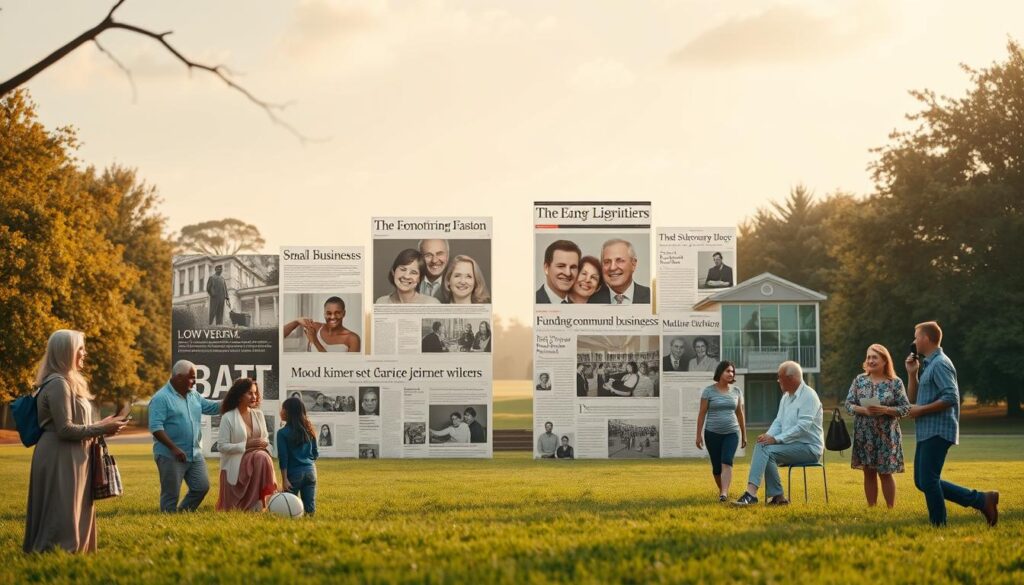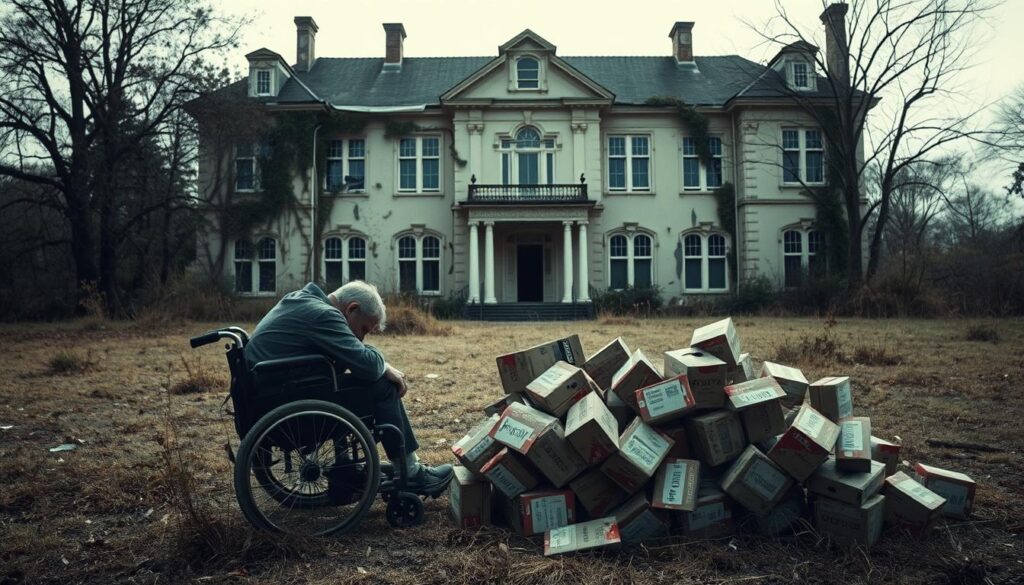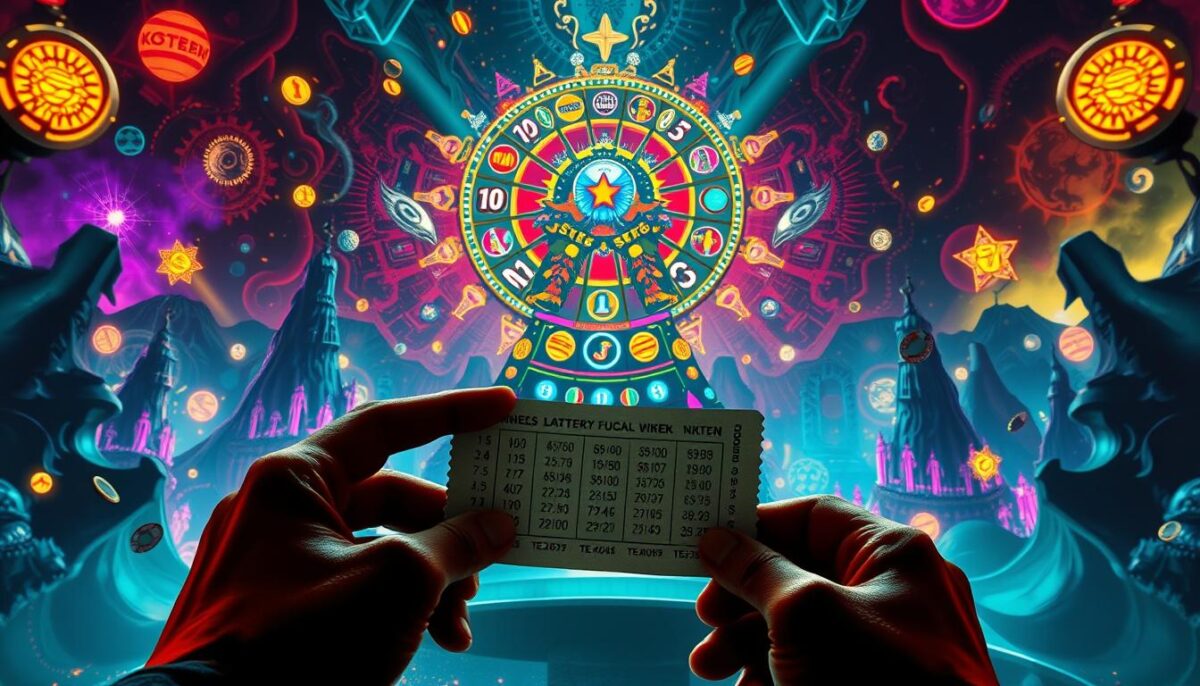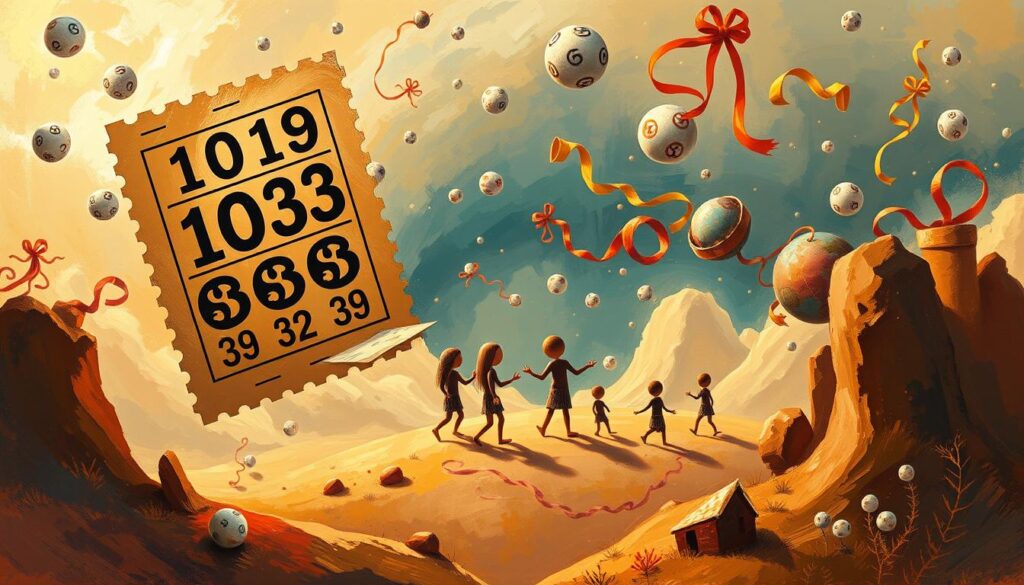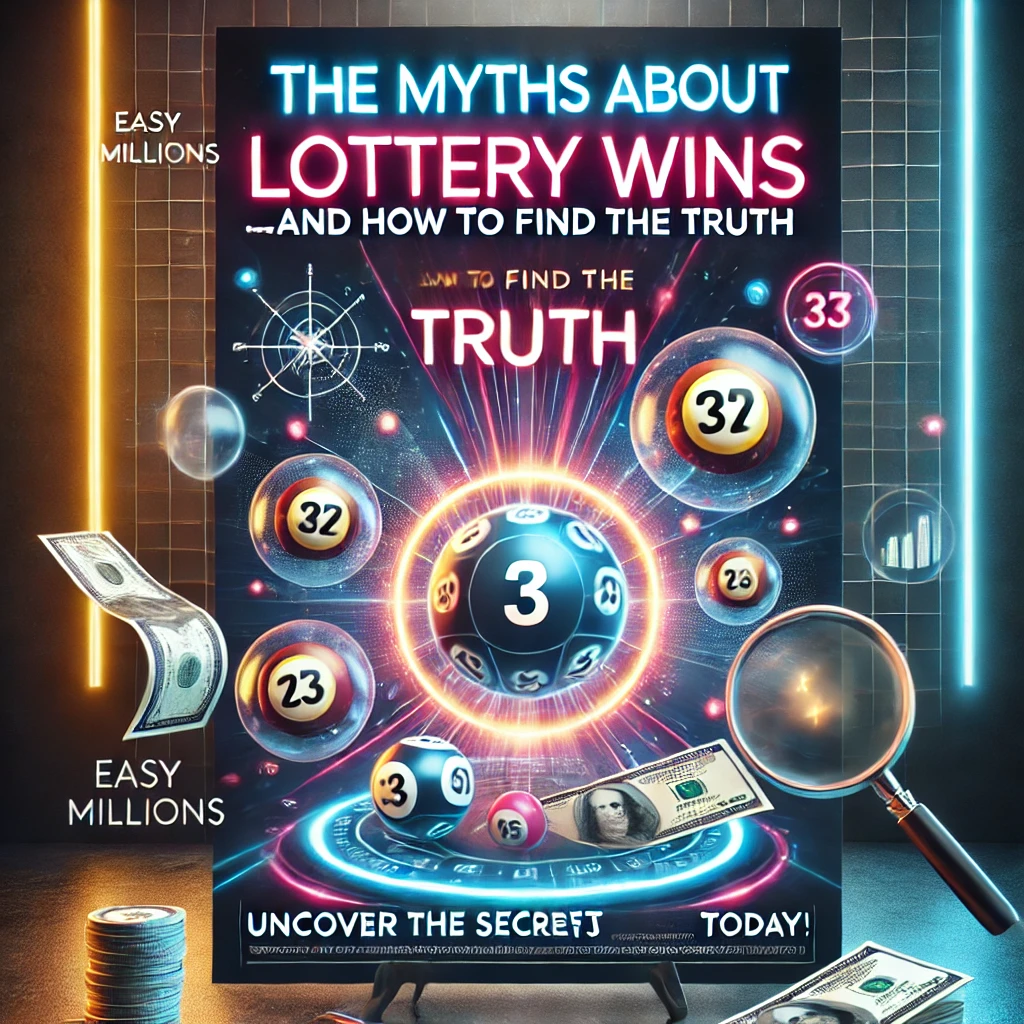We’re excited to share our knowledge with you about lottery strategies and myths. At Dewakoin, we aim to offer a safe, fun, and rewarding online gaming experience. Winning the jackpot in a 6/49 game is very rare, with odds of 1 in 13,983,816. It’s key to know the facts from the myths.
Lottery myths can cause people to believe in unrealistic winning chances. This can lead to harmful gambling habits. We’ll look at the most common lottery myths and strategies.
We want to give you a full guide to understanding the lottery and debunking myths. We’ll explore top strategies to boost your winning chances. For example, drawing a 3-odd-3-even combination in a 6/49 game has a 33.28% chance, showing balanced numbers are more likely.
We’ll talk about the importance of knowing the odds. It’s vital to see lottery games as fun, not a reliable way to make money.
Key Takeaways
- Lottery myths can lead to irrational beliefs about winning probabilities
- Understanding the odds is essential for making informed decisions
- Lottery strategies can increase your chances of winning
- Viewing lottery games as entertainment is crucial for responsible gaming
- At Dewakoin, we are committed to providing a secure and rewarding online gaming experience
- Lottery revenue contributes to public services, including educational programs
- Approximately 50 percent of Americans buy a lottery ticket at least once a year
Understanding the Lottery: Basic Principles and Probability
We at Dewakoin want to help you get the basics of the lottery. We’ll cover how random number generation works and the lottery odds of winning. Knowing these will help you make better choices when playing. Our experts will guide you, making sure you have a fair and fun time.
The probability of winning a big lottery jackpot is very low. For example, the Powerball’s jackpot odds are about 1 in 292 million. The Mega Millions jackpot odds are around 1 in 302 million. These numbers show why it’s key to understand the lottery odds and how random number generation impacts the results.
Here are some important points to keep in mind when playing the lottery:
- The odds of winning stay the same, no matter the numbers you pick.
- Buying more tickets doesn’t greatly boost your winning chances.
- Quick Picks, or randomly chosen numbers, have the same winning odds as picked numbers.
At Dewakoin, we aim to give you a safe and fun online gaming experience. By learning about lottery basics like probability and random number generation, you’ll make smarter choices. Our goal is to offer exciting games with good winning chances, so everyone has a fair shot at success.
The Psychology Behind Lottery Strategy Beliefs
People’s beliefs about lottery strategies are shaped by many factors. These include the wish to control fate and the belief in lucky numbers. At Dewakoin, we focus on safe and fun online gaming. We aim to give our players a great experience.
The psychology of lottery strategy beliefs is deep and complex. Research has shown that our minds play tricks on us. For instance, the idea that we’re “due” for a win is a common mistake. It’s based on the belief that past results can change the future.
Several psychological factors shape our lottery strategy beliefs. These include:
- The near-miss effect, which makes us keep playing, thinking we’re close to winning
- The need to control fate, leading us to believe in lucky numbers or rituals
- The power of emotions, like hope and the “what if?” factor, which keeps us playing despite low winning chances
Knowing the psychology behind lottery strategy beliefs helps us make better choices. We suggest setting a budget for lottery play and understanding the odds. Remember, winning the biggest lottery prize is as likely as being one of the Queen’s children.
Common Lottery Number Selection Methods
Choosing the right lottery numbers can be tough. That’s why we’re here to help. At Dewakoin, we want to give our players the best tools to win. There are many ways to pick numbers, like hot and cold numbers, birthdays, and quick picks.
Some players go for hot numbers, which are drawn often. Others choose cold numbers, which haven’t been drawn in a while. Our experts at Dewakoin can guide you through these options.
Here are some common ways to pick lottery numbers:
- Hot numbers: Numbers that have been frequently drawn in recent lottery games.
- Cold numbers: Numbers that haven’t been drawn in a while and are considered “due” for a win.
- Birthday and anniversary picks: Players choose numbers based on special dates, such as birthdays or anniversaries.
- Quick pick vs. manual selection: Players can either choose their numbers manually or use a quick pick option, which generates random numbers.
Knowing these methods can help players make better choices. At Dewakoin, we aim to provide a safe, fun, and rewarding online gaming experience. Whether you’re new or experienced, we’re here to support you.
The Truth About Lottery Strategies: 5 Myths Busted
We aim to give you a safe and fun gaming time. We also want to clear up lottery myths and help you find a winning strategy. At Dewakoin, we empower our players with knowledge to make smart choices. One myth is that buying tickets from certain stores or using specific numbers can boost your winning chances. But, the truth is, every ticket has the same chance to win, no matter where you buy it.
Another myth is that certain lottery strategies can guarantee a win. But, these strategies often rely on wrong ideas and can actually lower your winning chances. By learning about probability and debunking myths, you can make better choices and up your winning odds. Here are some common myths and facts about lottery strategies:
- Myth: You must check your tickets immediately after the draw to claim your prize.
- Fact: Winners usually have months to claim their prizes.
- Myth: Certain stores are luckier than others.
- Fact: Every ticket has an equal chance of winning, no matter where it’s bought.
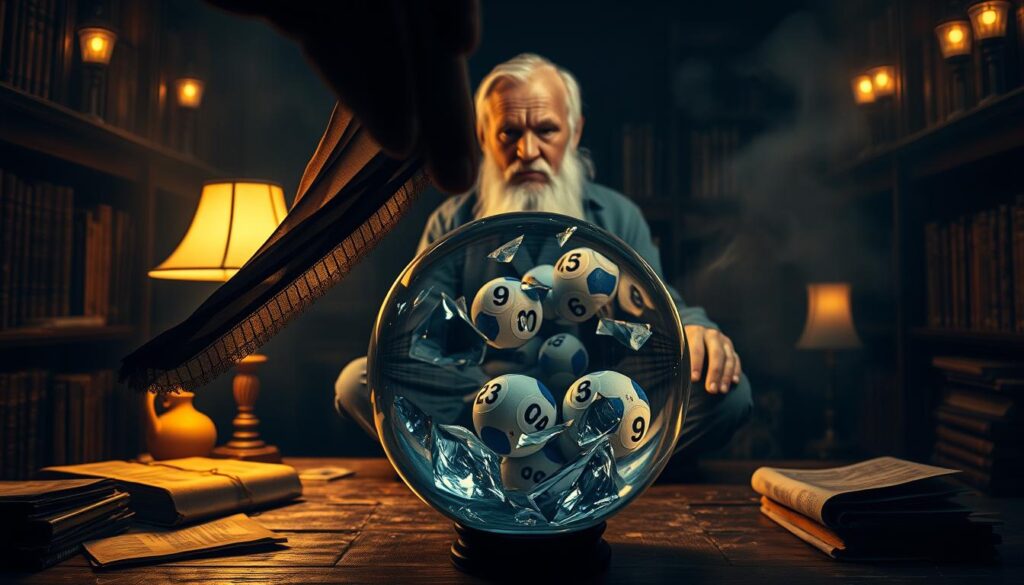
By knowing the truth about lottery myths and lottery strategies, you can make smarter choices and boost your winning chances. At Dewakoin, we’re dedicated to a safe and fun gaming experience. We’ll keep giving you the knowledge and skills you need to succeed.
Historical Lottery Patterns and What They Really Mean
We’ve looked into many lottery patterns and done historical analysis. Our research shows that lottery patterns are mostly due to chance. People often think they see patterns that aren’t there.
Looking at famous winners, like Richard Lustig, who won over $1 million in 17 years, shows no secret formula. It’s key to play smart, manage your money well, and spend responsibly.
Patterns like 3 odd/3 even or 3 high/3 low seem common, but it’s just because there are more ways to match these. Each number has the same chance of being picked, no matter what happened before.
To play the lottery wisely, understanding historical data and avoiding false patterns is crucial. At Dewakoin, we give our players tools to analyze past data. This helps them make smart choices, manage risks, and spend wisely.
The Role of Technology in Modern Lottery Systems
We aim to give our players a safe and fun online gaming experience. Lottery technology is key to this goal. At Dewakoin, we use the newest modern lottery systems to make our games fair, reliable, and fun.
Thanks to lottery technology, we offer many games, from classic lotteries to new scratchcards. Our modern lottery systems also make sure our online gaming is secure. Players can enjoy their favorite games without worry.
Our modern lottery systems have cool features like:
- Advanced random number generation
- Secure online payment processing
- Real-time game updates
- Personalized player accounts
By using the latest lottery technology, we give players an amazing gaming experience. Whether you’re a pro or new, our modern lottery systems have something for everyone. So, why wait? Join us today and see the thrill of online lottery gaming!

Financial Implications of Different Lottery Strategies
Playing the lottery can have big financial effects. It’s key to think about the cost and the chance of winning. At Dewakoin, we aim to guide you in managing your lottery finance wisely. We want to help you find a budget management strategy that fits your needs.
Looking into system playing means understanding the costs and benefits. Our experts can assess the financial side of various lottery strategies. They’ll help craft a plan tailored to your goals.
For budget management, consider setting a fixed lottery spending amount. Avoid spending too much and remember about taxes. A careful and informed approach to lottery finance can reduce risks and boost your winning chances.
Conclusion: The Reality of Lottery Success
At Dewakoin, we know the lottery can be thrilling, even with low winning odds. The lottery success stories might seem like dreams, but playing can still be fun. It’s all about understanding the odds.
We’ve looked into lottery myths and misconceptions. Now, you might see these games in a new light. There’s no guaranteed win, but playing smart can make it more fun.
Our goal at Dewakoin is to offer a safe and exciting online gaming space. We have the latest slot games with great winning chances. Join us and discover the lottery’s thrill for yourself.
FAQ
How do random number generators work in the lottery?
Lotteries use advanced random number generators (RNGs) for fair results. These RNGs create numbers that are unpredictable and not linked to past draws.
What are the true mathematical odds of winning the lottery?
Winning lottery odds vary by game. For example, Powerball’s jackpot odds are about 1 in 292 million.
How do cognitive biases influence beliefs about lottery strategies?
Biases like the gambler’s fallacy can make people believe in unproven strategies. Knowing these biases helps you make better lottery choices.
What are the pros and cons of different lottery number selection methods?
There are many ways to pick lottery numbers, like using hot and cold numbers or birthdays. Each method has its own benefits and drawbacks. The best choice depends on your style and preferences.
What are the most common myths about lottery strategies?
Common myths include believing in lucky stores or hot numbers. These myths are not backed by facts and should be debunked.
How can historical lottery data be used to inform decision-making?
Looking at lottery history can be interesting. But, remember that each draw is independent. Our experts at Dewakoin can help you understand historical data for better decision-making.
How has technology improved the lottery experience?
Technology has made the lottery better with secure online platforms and advanced RNGs. At Dewakoin, we focus on innovation for a top-notch gaming experience.
What are the financial implications of different lottery strategies?
The cost and potential return of lottery strategies vary. Our experts at Dewakoin can help you manage your budget and make smart financial choices.


